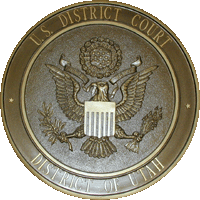
Step-Saver Data Systems, Inc. v. Wyse Technology was a case in the U.S. Court of Appeals for the Third Circuit primarily concerned with the enforceability of box-top licenses and end user license agreements (EULA) and their place in U.S. contract law. During the relevant period, Step-Saver Data Systems was a value-added reseller, combining hardware and software from different vendors to offer a fully functioning computer system to various end users. Step-Saver's products included software produced by Software Link, Inc (TSL), computer terminals produced by Wyse Technology, and main computers produced by IBM. The fundamental question raised in this case was whether the shrinkwrap licenses accompanying TSL's software were legally binding, given that different terms were negotiated over the phone with Step-Saver prior to receiving physical copies of the software. The case was first heard in the United States District Court for the Eastern District of Pennsylvania, where the court ruled that the shrinkwrap licenses were legally binding. However, the U.S. Court of Appeals for the Third Circuit subsequently reversed this decision, ruling that the shrinkwrap licenses were not legally binding.

Second Life is an online virtual world, developed and owned by the San Francisco-based firm Linden Lab and launched on June 23, 2003. It saw rapid growth for some years and in 2013 it had approximately one million regular users; growth stabilized and by the end of 2017 active user count had declined to "between 800,000 and 900,000". In many ways, Second Life is similar to massively multiplayer online role-playing games; nevertheless, Linden Lab is emphatic that their creation is not a game: "There is no manufactured conflict, no set objective".

SCO v. Novell was a United States lawsuit in which The SCO Group (SCO) claimed ownership of the source code for the Unix operating system, including portions of Linux. SCO sought to have the court declare that SCO owned the rights to the Unix code, including the copyrights, and that Novell had committed slander of title by claiming those rights for itself.

Philip Rosedale is an American entrepreneur who founded Linden Lab, which develops and hosts the virtual world Second Life.

Linden Research, Inc., doing business as Linden Lab, is a privately held American Internet company that is best known as the creator of Second Life.

Anshe Chung is an avatar of Ailin Graef in the online world Second Life. Referred to as the Rockefeller of Second Life by a CNN journalist, Graef has built an online business that engages in development, brokerage, and arbitrage of virtual land, items, and currencies, and has been featured in a number of prominent magazines such as Business Week, Fortune and Red Herring.
Teen Second Life was a version of Second Life reserved for teenagers, running on the so-called "Teen Grid." It was officially opened to the public on February 14, 2005 for people aged 13–17 to use Second Life, without entering false information to participate in Second Life . On January 1, 2006, Teen Second Life's operating hours were increased to 24 hours a day, whereas it was previously open only from noon to 10 pm Pacific Time.
The virtual world Second Life has its own economy and a virtual token referred to as Linden Dollars (L$). In the SL economy, users buy from and sell to one another directly, using the Linden, which is a closed-loop virtual token for use only within the Second Life platform. Linden Dollars have no monetary value and are not redeemable for monetary value from Linden Lab. A resident with a surplus of Linden Dollars earned via a Second Life business or experiential play can offer to exchange with other users via the LindeX exchange provided by Linden Lab. This economy is independent of the price of the game, which users pay to Linden Lab, not to each other. Linden Lab reports that the Second Life economy generated US$3,596,674 in economic activity during the month of September 2005, and as of September 2006 Second Life was reported to have a GDP of US$64,000,000.
The Second Life Grid is the platform and technology behind 3D online virtual world Second Life. In April 2008, IBM announced that it would explore future deployment of a portion of the Second Life Grid behind a corporate firewall.

Cory Ondrejka was the Chief Technology Officer of Linden Lab, makers of Second Life. With Philip Rosedale, Ondrejka co-founded Second Life and played a significant role in the architecture of the product. After leaving Linden Lab, Ondrejka became Senior Vice President of Digital Strategy for the EMI Group until he left EMI in September 2009. He also was vice president of engineering at Facebook.
Kevin Alderman, founder of Eros LLC, is the creator of the avatar of Stroker Serpentine in the virtual world of Second Life.

Greenberg & Lieberman is a national and international law firm based in Washington, D.C. Established in 1996 by Michael Greenberg and Stevan Lieberman, the firm is known for its expertise in the technology-law areas of intellectual property, trademark infringements, domain names, virtual worlds, and software and is among the 16 most influential entities in the field of domain names. A "boutique law firm", Greenberg & Lieberman credited for being among the first in the world to begin generating a significant revenue and client base via online virtual worlds such as Second Life. Greenberg & Lieberman are also noted for their involvement with media law and military law.

In Campbell v. General Dynamics Gov't Sys. Corp., 407 F.3d 546, the First Circuit had to consider the enforceability of a mandatory arbitration agreement, contained in a dispute resolution policy linked to an e-mailed company-wide announcement, insofar as it applies to employment discrimination claims brought under the Americans with Disabilities Act. Under the Court's analysis, the question turned on whether the employer provided minimally sufficient notice of the contractual nature of the e-mailed policy and of the concomitant waiver of an employee's right to access a judicial forum. The Court weighed the attendant circumstances; concluded that the notice was wanting and that, therefore, enforcement of the waiver would be inappropriate; and upheld the district court's denial of the employer's motion to stay proceedings and compel the employee to submit his claim to arbitration.
C & L Enterprises, Inc. v. Citizen Band, Potawatomi Indian Tribe of Oklahoma, 532 U.S. 411 (2001), was a United States Supreme Court case in which the Court held that the tribe waived its sovereign immunity when it agreed to a contract containing an arbitration agreement.
Richard P. Minsky is an American scholar of bookbinding and a book artist. He is the founder of the Center for Book Arts in New York City.
Jason A. Archinaco is an attorney known for the handling of the first virtual property lawsuit in the United States, Bragg v. Linden Research, Inc. That case is believed to have resolved confidentially.
14 Penn Plaza LLC v. Pyett, 556 U.S. 247 (2009), is a US labor law case in the United States Supreme Court on the rights of unionized workers to sue their employer for age discrimination. In this 2009 decision, the Court decided that whenever a union contract "clearly and unmistakably" requires that all age discrimination claims under the Age Discrimination in Employment Act of 1967 (ADEA) be decided through arbitration, then employees subject to that contract cannot have those claims heard in court.

Amaretto Ranch Breedables, LLC v. Ozimals, Inc. was a copyright case in the United States District Court for the Northern District of California involving a DMCA takedown notice dispute between companies that produce virtual animals on Second Life. Ozimals filed a DMCA takedown notice to Linden Research, the makers of Second life, claiming that Amaretto's horse infringed on their bunnies and demanding their removal. Consequently, Amaretto responded with a counter-DMCA notice and applied to the court for a temporary restraining order to forbid Linden Research from removing their virtual horses. This was granted and held in effect as the case proceeded. Amaretto claimed in court that Ozimal's DMCA notice was copyright misuse and asked for a declaration that its horses did not infringe copyright. Ozimals counterclaimed for copyright infringement. The court eventually dismissed both claims.

In re Zappos.com, Inc., Customer Data Security Breach Litigation, 893 F. Supp. 2d 1058, was a United States District Court for the District of Nevada case in which the Court held that Zappos.com's customers were not held to the browsewrap terms of use because of their obscure nature. The courts also held that the agreement was unenforceable because Zappos had reserved the right to change it at any time without informing the customers. This court decision set a precedent for businesses that use browsewrap agreements and/or include a clause in their agreements that allow them to change the agreements at any time. The decision encouraged conversation on how a business should most fairly display its terms of use and how to avoid unfairness and ambiguity when writing them.
Doe et al. v. Trump Corporation et al. is an ongoing case filed in the U.S. District Court for Southern District of New York in October 2018, in which four anonymous plaintiffs filed a lawsuit against the Trump Corporation, Donald Trump and three of his adult children — Donald Jr., Eric and Ivanka — alleging racketeering and of fraudulently encouraging unsophisticated investors to give large amounts of money to organizations connected to the Trumps. It is alleged that the defendants promoted ACN in exchange for millions of dollars in secret payments from 2005 to 2015. The lawsuit says that Trump "told investors that he had 'experienced the opportunity' and 'done a lot of research,' and that his endorsement was 'not for any money.'" However, it subsequently emerged that Trump was a paid spokesman for at least one of the companies whose products and services he was promoting to investors.











